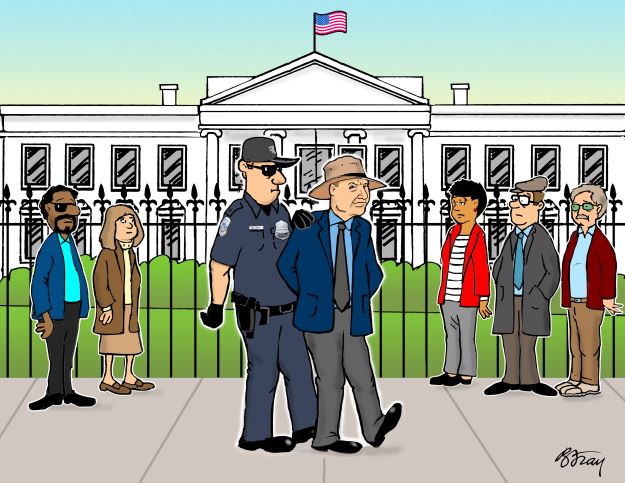Cheer Up. The Hard Part’s Over.
Posted by Daniel Hoornweg on January 03, 2024

Recently a fourth-year engineering student asked me, “so, how much trouble are we in?” With earth systems out of whack, like climate change and loss of biodiversity, burgeoning refugees, public debt, and active wars in Ukraine and Gaza, it is easy to despair, thinking a grim future awaits today’s youth. But there’s good news. Really.
First, my Christmas present to myself this year, Hanna Ritchie’s new book, Not the End of the World: How We Can Be the First Generation to Build a Sustainable Planet is to be published in early January. Dr. Ritchie, deputy editor at Our World in Data, is now on the podcast tour to promote the book. In short, her thesis is we can now build a sustainable planet. Of course, this will not be easy, but she makes a compelling data-based case that we can do this.
Second, and why arguably the hard part is over, is the historic (although still inadequate) agreement to come from COP28. COP28 again came in two-parts. Part-one was more than 100,000 people flying to a city in the desert to talk about climate change. A trade fair of anger, hope and fear, especially for the oil and gas industry. Part-two likely seemed arcane to most. Late nights debates over a few words. For example, ‘phasing out’ versus ‘phasing down’ fossil fuels.
The job of COP is to signal our collective, global direction. Amazingly COP must achieve consensus among 198 countries. We cannot even achieve consensus in Canada, leave alone the entire world, but after COP28 there is now consensus on the need to, “transition away from fossil fuels in energy systems in a just, orderly and equitable manner, accelerating action in this critical decade, so as to achieve net zero by 2050 in keeping with the science.”
In 50 years when we finally have significantly reduced our reliance on fossil fuels, this UN-brokered agreement may well be seen as the inflection point that ushered in sustainability.
Energy is the currency of life and cornerstone of sustainability. Emissions associated with combustion, along with water and air pollution, and massive land degradation from digging up materials like lithium and cobalt, are the back end of energy. Fossil fuels are inherently inefficient. For example, less than 20 percent of the fuel we put in vehicles results in useful propulsion. Most of the energy is lost as waste heat. Digging up, refining, and transporting fossil fuels, uses more than 35 percent of the fossil fuels before they ever reach the consumer. At least 30 percent of the ships and trains travelling around the world are delivering coal, oil, or gas. “Electrify everything” is mostly about making everything more efficient.
Of course, there will be challenges in reaching net zero with hard-to-abate sectors, the transient nature of some renewables, and impacts on energy systems from a changing climate. However, the COP28 agreement was possible because the cost and availability of non-fossil fuel energy supplies has progressed to a level where we can transition to a clean, low-carbon global energy system.
Sustainability comes in two parts: protecting planetary health and providing a baseline level of wellbeing for everyone. Collectively, we have done reasonably well in lifting much of the world out of poverty. But this has come at an enormous cost to the planet, as typified by climate change, deforestation, and loss of biodiversity.
Now, we need to continue the work of meeting basic human needs while also protecting the planet’s ecosystems.
The scientists and engineers convinced the world that we can do this. James Hansen, the NASA scientist, who likely has done more to raise awareness about climate change than anyone was arrested in front of the White House in 2011. Twelve years later COP28 confirmed, even among the petrostates (and petroprovinces), that we must and we can transition to net zero. Quibble over timelines and execution maybe, but the technology and economics are no longer the issue.
One could argue that the hard part is still ahead of us: Agreeing to who pays, and how, for the transition, and making sure the energy transition is part of the broader sustainability transition. Maybe, but fortunately, there’s a way. Now we just need the will. Have a happy and hopeful new year.
Filed under: Sustainability 101